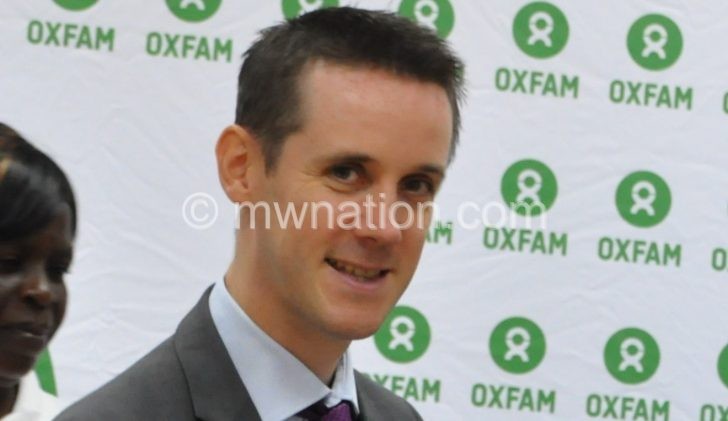Malawi faces EU aid test: Audit results key to budget aid resumption
European Union (EU) has engaged a team of independent consultants to perform a verification exercise whose findings hold the key to resumption of EU budget support to Malawi suspended in 2012.
The exercise is meant to assess and verify any evidence of achievements on the agreed targets between the EU and Malawi Government.

In a written response to a questionnaire, EU head of political and public relations office James Dolan confirmed the verification exercise, saying it is a general requirement that is critical to unlocking budget support.
He said: “Each country wanting to access general budget support needs to fulfil four general conditions, of which progress in Public Finance Management [PFM] and macroeconomic stability are most relevant to Malawi.
“To verify progress made, a team of independent consultants has been recruited and has recently started its work, which will hopefully be finalised early next year. The outcome of this verification exercise will inform further decision making on budget support.”
Last year, Malawi failed to meet the set targets. Contributing factors included failure by Parliament to present audit reports, pass the Access to Information (ATI) Bill, implement Farm Input Subsidy Programme (Fisp) reforms and lack of bank reconciliation.
The National Assembly’s failure to produce Auditor General’s reports as well as to discuss the independence of the National Audit Office (NAO) worsened the case for Malawi.
In the past year, Malawi has managed to implement some Fisp reforms which include 60 percent of the programme being managed by the private sector. The bank reconciliations exercise was also started as did reporting to the Auditor General.
However, pressure points remain, such as failure to pass the ATI Bill and a Bill on Auditor General’s independence.
Dolan further said budget support is only one of the aid modalities available and the last time the EU provided budget support was four years ago.
He said: “It is not the modality that is important, but rather the results that we are able to achieve for all Malawians. The European Union continues to implement the current country programme for Malawi for a total of 560 million euro supporting key government priorities and benefitting countless Malawians.”
In a separate interview, Speaker of Parliament Richard Msowoya confirmed that a proposed law on the independence of the Auditor General will be ready during the next meeting of Parliament.
Ministry of Finance, Economic Planning and Development spokesperson Alfred Kutengule said: “The verification exercise which the EU is conducting is for the assessment of benchmarks for budget support from the EU. The Ministry of Finance, Economic Planning and Development believes that government has put its house in order.
“We are, therefore, optimistic that the requirements for the EU budget support will be met this time. However, we are not the assessors and, therefore, we will wait until the verification exercise is completed.”
Traditionally, donors, including the EU, have contributed about 40 percent to Malawi’s recurrent budget and roughly 87 percent to the development account.
In the 2016/17 National Budget, Minister of Finance, Economic Planning and Development Goodall Gondwe had projected total revenue and grants at K965.2 billion, of which K190.4 billion would be grants from development partners. However, once more, the minister did not count on budgetary support in the current fiscal year.
From the EU, Gondwe said Malawi expected $30 million in budget support while the World Bank was expected to put in $80 million.
In an exclusive interview with The Nation in September, the minister acknowledged that conditions to access the funds remained visible progress in public finance management reforms, including incorporation of main government bank accounts in the Integrated Finance Management Information System (Ifmis), procurement of Ifmis software itself, enforcement of the Public Finance Management Act and coordination of cash management, among others.
Since late 2013 when revelations of Cashgate—the plunder of public resources from Capital Hill—were known, major donors froze budgetary support, citing Malawi’s leaking public finance management system as too compromised to entrust it with their resources. n





